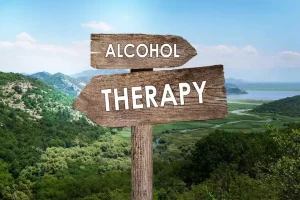
For many of us, the allure of a glass of wine with dinner after a long day or a pint of beer at happy hour has been rationalized by alcohol’s—wine, specifically—purported health benefits. If you feel the need to cut back on your drinking you don’t have to tackle it alone. Ria Health is a flexible, smartphone-based program that works to fit your circumstances and unique relationship with alcohol. Whether you want to drink moderately or quit completely, the Ria team can help you get there. If you feel that you need a drink every night to unwind or cope with stress, and you experience cravings or a compulsion to drink daily, this behavior could indicate a developing alcohol dependency. Regularly drinking in this manner warrants a closer look at your relationship with alcohol and it may be time to consider getting help for your drinking habits.
- If you are on any medications, talk to your health care provider about how alcohol may affect them.
- This versatile pump can be used to accurately dose chlorine or other chemicals into water systems, providing an automated solution for maintaining consistent water quality.
- People may start abusing alcohol due to depression or become depressed by abusing alcohol.
- But without a routine or daily responsibilities, alcohol use can more easily spiral, he says.
A daily drink: Not as harmless as you might think
Kelli Easley comes to Anchored Tides bringing with her over seventeen years of experience in the field of addiction. Her unwavering passion to help others stems from her commitment to give back after overcoming her own 17-year addiction. Kelli iscurrently working towards a degree in Business Administration along with being a loving mother to her husband, and two sons. In her free time, Kelli is active in the recovery community and lends her support to nonprofit organizations to help those in underserved communities.
How to Stop Drinking: Making a Plan That Works for You
That said, If you’ve been drinking excessively, then stopping drinking cold turkey can lead to withdrawal symptoms. Talk with a healthcare professional if you’re concerned you may experience detox symptoms when quitting drinking or cutting back. If you drink every day, or almost every day, you might notice that you catch colds, flu or other illnesses more frequently than people who don’t drink.
CAR-T immunotherapy for prostate cancer?
Even light alcohol consumption — up to one drink per day — is linked to a 20% increased risk of mouth and throat cancer (59, 60). However, heavy drinking can have a negative impact on your mood and the function of your brain, heart, and other bodily systems. The study described above examined how much alcohol consumption might be too much. Light drinkers (those consuming one to three drinks per week) had https://ecosoberhouse.com/ the lowest rates of cancer or death compared to those drinking less than 1 drink per week. Anchored Tides Recovery’s Intensive Outpatient Program (IOP) provides a flexible and supportive treatment option for women seeking recovery from addiction and mental health issues. Our IOP combines evidence-based therapies, group counseling, and individualized care plans tailored to each woman’s unique needs.
- Your liver is a remarkable organ with hundreds of essential functions.
- To stop drinking alcohol, you first need to understand your relationship with drinking.
- You want to seek emergency medical care if you are experiencing chest pain, shortness of breath, rectal bleeding, dizziness, vomiting blood, slurring of speech, or weakness on one side, she explains.

Like many who have struggled with addiction, Markie’s journey to sobriety was no straightforward path. As a Tulane University student and intern for the NASA Stennis Space Center, she was on her way to a successful life! Personal struggles and watching her brother also struggle and lose his battle with drugs and alcohol only drove her deeper into addiction.
A new study could change what’s considered moderate drinking

Now, a new study suggests that any amount of alcohol — even just one drink per day — may raise rather than lower a person’s risk of cardiovascular disease. My name is Andy Mouck, and I am a dedicated group facilitator at Anchored Tides Recovery. Having personally overcome addiction and completed treatment in 2017, I am deeply passionate about helping individuals on their recovery journey. I bring acompassionate and empathetic approach to my role, creating a safe space for participants to heal and grow. Alongside my work as a group facilitator, I am a National Academy of Sports Medicine Certified Personal Trainer, sharing my love for fitness and wellness as an integral part of recovery. As a registered drug and alcohol technician, I am committed to providing the highest quality care and staying informed about the latest advancements in addiction treatment.
Observational studies dating back to the early 1990s linked light to moderate drinking (one to two drinks per day) to a lower risk of heart disease. But such studies can’t prove that alcohol was responsible for the benefit. Light to moderate drinkers tend to be well educated, fairly affluent, and likely to have healthy lifestyle habits, all of which may explain their lower risk. Researchers can attempt to control for these so-called confounding factors, but it’s tricky to capture all the possible influences. Alcohol use, especially excessive alcohol consumption, can harm your physical and mental health.
- This idea was known as the “French paradox” — the observation that the French drank lots of wine, and despite eating a diet rich in saturated fat, had lower rates of cardiovascular disease.
- And in rare, extreme cases, if left unaddressed these side effects can also lead to fatality.
- Ethanol reduces communication between brain cells — a short-term effect responsible for many of the symptoms of being drunk.
- Baby Alejandra’s family live in a rural community and depends on a well for their drinking water supply.
The answers could guide recommendations of doctors, public health officials, and policy makers throughout the world — and they could save millions of lives. Red wine appears to be particularly beneficial because it is very high in healthy antioxidants. In fact, it may have adverse effects on development, growth, intelligence can you be an alcoholic and not drink everyday and behavior — which may affect the child for the rest of its life (63). Alcohol abuse during pregnancy is the leading preventable cause of birth defects in the US. Drinking while pregnant can lead to abnormal facial features, low birth weight, central nervous system problems, and other serious issues (63, 64).

Most glasses of wine contain roughly 120 calories and this on top of a regular day of calorie consumption can lead to weight gain. Alcohol is a diuretic, which means it moves water and salt out of the body and can cause dehydration. That feeling of desperately needing water to help with a dry mouth after waking up from a night of drinking is due to dehydration. In addition to being uncomfortable, dry mouth can lead to inflammation of the mouth and reduced salivary flow, which contributes to tooth decay. Whether your drinking is verging on alcoholism or not, drinking daily can carry many risks.


